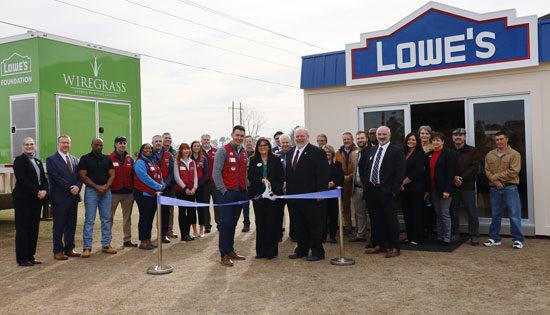ADEL, GA – The focus of a new podcast released by The Intercept will focus on the murder of a Taco Bell employee from 20 years ago in Cook County, Georgia.
On September 19, 1998, Donna Brown, 41, was leaving her late shift as night manager at Taco Bell. She had a reputation for being a hard worker and was a single mom with a seven-year-old at home. It was late – or early. Close to 2 a.m. She had closed up and taken nearly $2,000 for next day’s bank deposit and walked to her Monte Carlo in the parking lot, not far off Interstate 75’s exit 39 in Cook County.
Donna was approached by a man in the parking lot wearing a mask and was fatally shot in the eye, robbed, and just like that she was gone. The killer drove off with the money and her car, which was later recovered less than a mile away from the Taco Bell driven into a chain link fence. When the car was returned to Brown’s family, they found a homemade mask inside on the floorboard, fashioned crudely from the bottom leg of a pair of sweatpants – two holes cut out for eyes.
Oddly, this piece of evidence was photographed in the original police photos, but was not collected. Nonetheless, this would be a key point in the trial, when a prosecutor held up the mask saying the defendant hadn’t had to kill Brown since she wouldn’t have been able to identify him anyway.
Later, that same mask would play another role, on the other side of justice.
These kinds of things don’t happen too often in little Adel, but when they do, it’s a big deal. Small town law enforcement don’t have too much experience in forensics or deep investigations. That’s the whole point of small town life – you don’t have too many murders and crime is, if not non-existent, relegated to the “wrong side of the tracks” moments in people’s lives – drunken couples brawling in their front yards, or methed-up, tail-chasing tweakers who won’t turn off their power tools at 3 a.m., maybe somebody’s 16-year-old son caught with a joint at a road block, drug busts, and the random robbery – armed or petty.
Murders in places like Adel, Georgia break the town’s history up incrementally. “Remember it was right before that girl was shot at the Taco Bell?”
Or, “Remember when that store owner and woman got beaten to death with a baseball bat at that grocery?”
Two of Adel’s most memorable murders, in 1998 and 2000, now inextricably bound to one another in the court of global public opinion if not in the Alapaha Judicial Circuit’s Superior or Georgia’s Supreme courts.
After Brown’s murder, authorities began investigating. Interviews led them to Devonia Inman, 20 at the time, and new in town. His mother had wearied of him hanging out with a bad crowd in California and sent him packing down to Georgia where she thought he might be able to get it together. He already had an arrest record. Two months after his move to Adel, he was being looked at by police for killing Donna Brown.
At that time, there was no physical, just circumstantial, evidence. The conviction was based on the testimonies of witnesses. One, Marquetta Thomas, was the young sister of Inman’s girlfriend. She claimed he had come to her house with bloody clothing and a lot of money. She later recanted, saying she’d only said it because she was angry with him for abusing her younger sister. Thought it would be a good way to get him back. To this day, she stands by her recantation, pleading with whomever will listen to let Inman out of jail, she lied, she’s sorry.
Another witness was Donna Brown’s fellow Taco Bell employee, LarRisha Chapman, who first told investigators she saw Inman hiding outside the restaurant that night and heard his voice. She, too, later recanted, claiming she’d told investigators the fabricated story so they would stop calling her.
The other witness, Kwame Spaulding, was an inmate who had shared a cell with Inman. He claimed Inman had confessed to the crime while they bunked together – but he later recanted, saying he had been told by detectives they would let him go if he implicated Inman.
The other witness was a newspaper delivery girl, Virginia Tatem, who claimed to have seen him driving past haphazardly following the murder. Her paper delivery partner, however, insists that she couldn’t have seen what she said, but Tatem maintains her original statement.
After his 2001 trial, the jury convicted Inman. The prosecutor requested the death penalty but he lucked up and got life without parole.
The key was thrown far, far away. Men like him don’t ever expect anyone to come get them out. God, maybe. But thinking some kind soul would hear him insist he was innocent and go the distance working pro bono to get his sentence overturned? Another matter. That’s a longer shot than winning the lottery.
But the Georgia Innocence Project (GIP) did take an interest after Inman wrote a letter, as have others, such as Georgia State University’s College of Law. Since the murder of Brown, interest in his case has gained momentum, while internet denizens take the tale on and start analyzing and holding the facts up to the light, inspecting every aspect.
If Inman happened to be innocent, most people would agree he should be set free. And it looked hopeful, just for a shooting-star moment. In 1998, DNA wasn’t the boon to forensics it is today. But once it dug its heels in, some saliva was tested in 2011 at the behest of Inman’s attorneys with the GIP – and lo and behold.
The GBI ran it through its database – and there was a match. The only one who could’ve been wearing the mask was none other than convicted murderer, and fellow Taco Bell employee of Donna Brown’s, Hercules Brown (no relation). Brown was already serving four life sentences with no chance of parole and at least 20 years in prison, all to be served consecutively, for bludgeoning to death of a store owner and a cook at Bennett’s Grocery in Adel from November 10, 2000. A brutal crime. Brown took a baseball bat and beat them in broad daylight, attempting to steal the cash register and confronted by store customers.
Inman’s heart must have jumped up and down inside him, the white bright light of hope must have been hard to resist embracing.
But the original judge didn’t accept the evidence as reason to grant Inman a new trial. And that, as they say, was that.
The Atlanta Journal-Constitution’s writer, Bill Rankin, hosted a podcast in 2016, “Breakdown,” which was popular and reached a worldwide audience.
Inman has always professed his innocence. Meanwhile, Hercules Brown has taken the 5th, refusing to cooperate on the grounds it might incriminate him. Click here for a video of GBI agent interviewing Hercules Brown.
People all over the world have begun paying attention to Inman’s plea of innocence.
Most recently, the muckraking behemoth of investigative reporting, The Intercept, created by eBay founder Pierre Omidyar, has taken on the case in a new featured podcast titled, “MURDERVILLE + GA,” based on reporting by The Intercept journalists Liliana Segura and Jordan Smith. A seven-episode nonfiction crime podcast “uncovering a series of unsolved murders and a wrongful conviction in Adel, Georgia.” All the episodes are available, beginning November 20, on Stitcher Premium where listeners can sign up using StitcherPremium.com/Murderville and get a free 30-day trial.
Starting on December 20, all episodes will be released on a weekly basis in all major podcast platforms, such as Apple and Google. Also available are four long-form articles by hosts Segura and Smith on TheIntercept.com beginning December 6.
The Intercept has released a trailer for the podcast which can be listened to here.
The Intercept’s website reads:
When a brutal murder rocks a small Southern town, residents and police are shocked. Could the new guy in town be the one who who did it? Yes, the cops say, he is. Case solved. But then another murder happens. And another. In the end: four bodies, two convictions, and one man in jail for a crime he likely did not commit. Welcome to Murderville, Georgia. Investigative reporters Liliana Segura and Jordan Smith uncover what happens when law enforcement locks up their first suspect, leaving another man free to kill.











